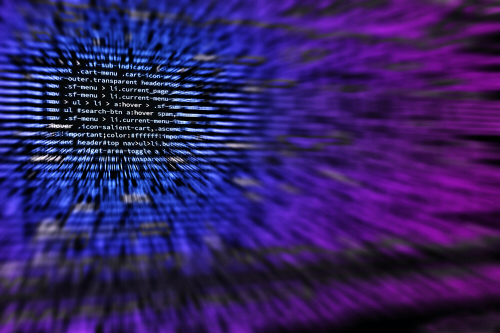Quantum Computers: Supreme Achievement
量子计算机:至高成就
A demonstration of quantum computing’s power is a defining moment for a field prone to hype
对于一个容易被炒作的领域,量子计算能力的展示是一个决定性时刻
“Nature isn’t classical, dammit, and if you want to make a simulation of nature you’d better make it quantum mechanical, and by golly, it’s a wonderful problem because it doesn’t look easy.” With those words, in 1981, Richard Feynman, an American physicist, introduced the idea that, by harnessing quantum mechanics, it might be possible to build a new kind of computer, capable of tackling problems that would cause a run-of-the-mill machine to choke. Feynman was right: it has not been easy. Over the past four decades quantum computers have slowly evolved from squiggles on theoreticians’ blackboards to small machines in university laboratories to research projects run by some of the world’s biggest companies.
“自然界并不像经典物理学描述的那样,真见鬼。要想模拟自然,最好用量子力学。天哪,这真是一道太精彩的题,因为一看就不容易。”1981年,美国物理学家理查德·费曼(Richard Feynman)在这番话中提出了这样一个想法:借助量子力学,也许能打造出一种新型计算机,解决普通计算机可能无力应对的问题。费曼说得对,这并不容易。过去40年里,量子计算机慢慢从理论学家画在黑板上的潦草曲线发展到大学实验室里的小机器,再演变成世界上一些最大公司的研究项目。
Now one of those machines, built by researchers at Google, has at last shown what all the fuss is about. It appears to have performed, in just over three minutes, a task that, the researchers estimate, the world’s most powerful classical supercomputer would take around 10,000 years to complete. Google’s machine is a special-purpose device that was designed to solve a contrived problem with few practical uses. But this display of so-called “quantum supremacy” is nonetheless a milestone.
现在,谷歌的研究人员制造的其中一台机器终于让世人得见这件事到底有多了不起。研究人员估计,它在三分多钟的时间里完成的一项任务,若用世界上最强大的经典超级计算机来干大约耗时一万年。谷歌的这台机器是一种专用设备,旨在解决一项人为设计的问题,没有多少实际用途。但这种所谓“量子至尊”的展示仍然具有里程碑意义。
What might quantum computing actually be used for? That question is obscured by the piles of money and hyperbole that surround it. Along with 5G and AI, it is one of the technologies that presidents, of both countries and companies, love to cite. China and America have pledged to invest billions of dollars in it. There is excited talk of a race, and of the riches and power that await the first to seize the “Holy Grail of computing”.
量子计算可能会有什么实际用途呢?这个问题被围绕在它周围的大量金钱和夸张的言论所掩盖。与5G和人工智能一样,量子计算也被国家首脑和企业大佬们挂在嘴边。中国和美国已经承诺在该领域投入数十亿美元。人们兴奋地谈论着一场竞赛,以及在此竞赛中第一个捧起“计算圣杯”的那一方将收获的财富和影响力。

Despite the breathlessness, quantum computers are not magical. A rich body of theoretical work proves that they will be potent, but limited. For all the talk of supremacy, quantum computers are not superior in every regard to their classical cousins. Indeed for many tasks they will offer little improvement. Yet for some problems – but only some – clever programmers or mathematicians can create algorithms that exploit the machines’ quantum capabilities. In those special cases, quantum computers offer huge gains, crunching tasks that would otherwise take years or millennia down to minutes or seconds.
尽管如此扣人心弦,但量子计算机并无魔力。大量理论研究证明,它们会非常强大,但仍有局限性。虽然人们都在谈论它的至高无上,但它们并非在所有方面都优于经典计算机。实际上,它们在许多任务上能带来的提升微乎其微。但在有些问题上——仅仅是有些——聪明的程序员或数学家能创造出算法来利用这些机器的量子能力。在这些特殊的案例中,量子计算机会带来巨大的收获,用几分钟或几秒钟处理完原本需要多年或几千年才能完成的任务。
Several of these algorithms have been developed. They offer a glimpse of where quantum computers might excel. In encryption, for example, a quantum machine could quickly untangle the complex maths that underlies much of the scrambling that protects information online. A world with powerful quantum computers, in other words, is one in which much of today’s cyber-security unravels. Tech firms and governments are investigating new foundations for encryption that are not known to be susceptible to quantum computers. But deploying them will be the work of decades.
其中一些算法已经被开发出来,让人们得以一窥量子计算机的优势所在。例如在加密技术方面,量子机器可以迅速解开复杂的数学题,而这些数学题则构成了保护网上信息的大部分加扰处理。换句话说,在一个拥有强大量子计算机的世界里,今天的大部分网络安全措施都会被攻破。科技公司和各国政府正在研究新的基础加密技术,希望能免受量子计算机的影响。但部署它们要耗费几十年。
As Feynman pointed out, classical computers struggle to simulate the quantum-mechanical processes that underpin physics and chemistry. Quantum computers could do so with aplomb, a useful trick for developing everything from pharmaceuticals to petrochemicals. Their ability to solve optimisation problems could help financial firms improve their trading algorithms. Artificial-intelligence researchers hope that quantum computers could offer a boost to their algorithms, too.
正如费曼所指出的,经典计算机很难模拟作为物理和化学基础的量子力学过程。量子计算机可以轻松自如地做到这一点,这对于开发从药物到石油化工产品的各种物品都很有用。它们在解决优化问题上的能力能帮助金融公司改进交易算法。人工智能研究人员也希望量子计算机能改进他们的算法。
For now, though, all that lies in the future. Google’s machine is best thought of as a Sputnik moment. By itself, Sputnik did nothing but orbit Earth while beeping. But it proved a concept, and grabbed the world’s attention. Google’s accomplishment is one in the eye for quantum-computing sceptics. It strongly suggests the promise of quantum technology can be realised in practice as well as theory. And it will draw even more money and attention to a red-hot field. A great deal of engineering work remains before quantum computers can be used for real-world tasks. But that day has suddenly got closer.
不过,现在一切都还未见分晓。谷歌的机器最适合被看作一个史泼尼克时刻。就“史泼尼克号”本身而言,它除了哔哔地叫着绕行地球外并没什么用处。但它证明了一个概念,并吸引了全世界的注意。谷歌的成果打击了量子计算的怀疑论者。它强有力地表明了量子技术的前景不仅在理论上成立,在实践中也能实现。而这将为这个炙手可热的领域吸引到更多的资金和关注。在用量子计算机解决现实世界的任务之前还有大量的工程建设要完成。但这一天突然离我们更近了。
英文、中文版本下载:http://www.yingyushijie.com/shop/source/detail/id/2092.html








